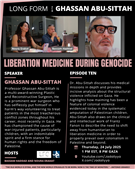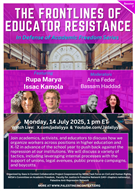TRAINING TO ENGAGED RESEARCH: PROPOSAL WRITING AND RESEARCH DESIGN SEMINARS IN SOCIAL SCIENCES FOR JUNIOR FACULTY IN EGYPTIAN PUBLIC UNIVERSITIES
ARAB FAMILIES WORKING GROUP http://arabfamilies.org
Lead Presenter: Suad Joseph, University of California, Davis
DATE: OCTOBER 24, 25, 26, 2014
Flamenco Hotel, Valencia Room, Cairo, Egypt
This seminar will train junior faculty (recent PhD’s or MA level) in the social sciences from national public universities in Egypt in proposal writing and research design, with two intensive seminars, the first in OCTOBER 24, 25, 26, 2014 and a second in March 2014, in Cairo. The first day is open, by application, to junior faculty, advanced graduate students, and scholar/activists in NGO’s. The second and third days are open, by application, to a select smaller group of junior faculty from Egyptian public universities for intensive training in proposal writing and research design. A limited number of exceptions may be made for advanced graduate students. The training will include individual mentoring of each trainee for the period between the two seminars. The selected group will be invited to apply for the available seed funding to carry out engaged research in their communities, under the guidance of a mentor from AFWG. At the end of the mentoring period, during the second seminar, the trainees will be asked to make a presentation/report on their research to an invited audience. The training is intended to prepare junior faculty for continued graduate training towards their PhD’s or assist new PhD’s in initiating new research programs for publication. Seminar participants will be funded for travel to and from Cairo, and accommodations in Cairo, unless they already live the greater Cairo area. Participants need to be comfortable speaking and writing in English.
The Arab Families Working Group (http://arabfamilies.org) is organizing the seminars, funded by the Ford Foundation, Cairo office. AFWG is a collaborative project with 16 scholars who carry out research on Arab families and youth in Egypt, Lebanon, Palestine and their diasporas. AFWG is committed to training a new generation of scholars to carry out engaged social science research.
The seminars will cover all the components of a “maximal” research proposal (most of the questions that funders typically ask) and train participants to tailor to a “targeted” proposal. The structure of the workshop includes a day of intensive lectures which present all the components of a research proposal in a condensed form. The remaining days focus on the individual projects of each seminar participant in small group and individual formats. In advance of the workshop, participants will be asked to read key documents and submit a research abstract. The participants will work on writing a complete proposal, including budgets, and submitting them to an AFWG review committee. Each participant will be assigned a mentor who will work with them throughout the period to develop their proposals and carry out their research projects. In the second seminar, the participants will present their work/reports and receive additional training on writing and publishing research results.
The key presenter is Dr. Suad Joseph, Distinguished Professor of Anthropology and Women and Gender Studies at the University of California, Davis (http://sjoseph.ucdavis.edu ). She has been teaching proposal writing at UC Davis, for over 30 years. She was been conducting proposal writing workshops for faculty, graduate students, and NGO’s throughout the Middle East, as well as in the USA for over a decade.
To apply for the seminar, fill out the attached application form and fill out the form for the ONE page abstract. Answer the questions on the application form precisely in the space provided. The form and abstract should be sent to: Suad Joseph, (mailto:sjoseph@ucdavis.edu) and Dina El Sherbeny (dinasherbeny@aucegypt.edu) by 25 September, 2014.
Participants are asked to read the following documents BEFORE the workshop http://sjoseph.ucdavis.edu/Faculty_Workshop/index.htm as well as on (http://arabfamlies.org )
a. Components of a Humanities & social science Research Proposal
b. Ten Tips for Proposal Writing
c. The Art of Proposal Writing
![[Image from Shutterstock]](https://kms.jadaliyya.com/Images/357x383xo/shutterstock_115567375.jpg)
















